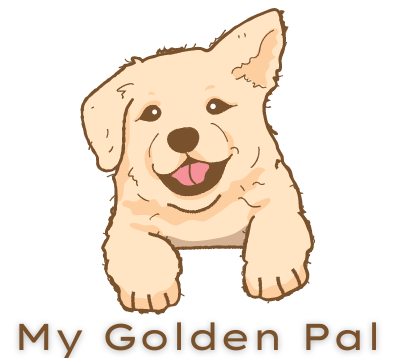The arrival of a golden retriever puppy into your home is a joyous and exciting time. However, as your adorable furball explores their surroundings, you may come across a common problem: biting. Although puppy biting is a natural behavior, it is critical to guide your golden retriever and teach them proper manners. In this article, we’ll look at how to stop your golden retriever puppy from biting and how to raise a well-behaved companion.
I. Understanding Puppy Biting Behavior
Puppies of golden retrievers, like puppies of other dog breeds, go through various stages of development. Understanding the underlying causes of their biting behavior can aid in effective management.
1. Biting is a natural instinct.
Puppies explore their surroundings with their mouths, and biting is an instinctive behavior inherited from their wild ancestors. Puppy biting is a form of social interaction and communication when puppies play with their littermates.
2. Teething Stage
Teething causes discomfort in your golden retriever puppy as they grow. Biting helps to relieve the itchiness and pain associated with teething. Chewing on various objects, such as your hands or furniture, may provide them with relief.
3. Biting and socializing
Puppies learn boundaries and appropriate behavior through play biting during socialization. However, if they are not properly guided, this behavior can develop into persistent biting as they grow.
II. Importance of Stopping Biting Behavior
Biting behavior must be addressed for several reasons:
1. Concerns for Safety
As your golden retriever puppy grows, so does his or her jaw strength, making bites more painful. Uncontrolled biting can endanger family members, especially children, as well as visitors. Bite inhibition should be taught to your puppy to avoid accidental injuries.
2. Defining Boundaries
Setting boundaries is critical to maintaining a harmonious relationship with your pet. Teaching your golden retriever puppy not to bite establishes mutual respect and lays the groundwork for future training.
3. Healthy Relationship Promotion
Controlling your puppy’s biting behavior allows him to interact appropriately with other dogs and humans. It ensures that everyone has a good time while playing and avoids potential conflicts with other pets or people.
III. Techniques to Stop Golden Retriever Puppy Biting
1. Redirecting and Distracting:
When your dog starts biting, divert their attention to a chew toy or bone that is more suitable. This teaches them what items are suitable for chewing and promotes healthy chewing habits.
2. Positive Reinforcement Training:
Reward your puppy for calm behavior and appropriate chewing with positive reinforcement techniques such as treats and praise. Consistently reinforce good behavior to help them understand what is expected of them.
3. Providing Appropriate Chew Toys:
Provide a variety of chew toys designed specifically for teething puppies. These toys soothe their sore gums and help them redirect their chewing instincts away from inappropriate items.
4. Socialization with Other Dogs:
Encourage supervised play sessions with other well-behaved dogs. Your puppy will learn important social cues and bite inhibition from their furry peers through gentle interactions.
5. Consistency and Patience:
Training takes time and consistency. Be patient with your golden retriever puppy and reinforce positive behavior consistently. Avoid physical punishment, as it can lead to fear and aggression.
IV. Creating a Puppy-Friendly Environment
1. Puppy-Proof Your Home:
Remove or secure any items that your puppy could chew on, swallow, or damage. To avoid accidents, keep electrical cords, shoes, and valuable objects out of reach.
2. Designated Play Areas:
Create a safe space for your puppy to play and explore. This area should be well-supervised and free of hazards so that your puppy can engage in activities without biting excessively.
3. Establishing a Routine:
A consistent daily routine helps your puppy understand what to expect. Regular meal times, playtime, training sessions, and rest periods provide structure and stability, which reduces anxiety and unwanted behaviors such as biting.
V. Addressing Common Challenges
1. Biting During Training Sessions:
If your golden retriever puppy becomes overly excited and starts biting during training, take a short break to allow them to calm down. Reinforce positive behavior and resume training once they’re more focused.
2. Dealing with Persistent Biting:
If your puppy continues to bite despite consistent training efforts, consider seeking guidance from a professional dog trainer or behaviorist. They can provide tailored advice and help address any underlying issues.
VI. The Role of Professional Training
While many biting issues can be resolved through consistent training at home, professional training can be beneficial, especially for more challenging cases. Trainers can assess your puppy’s behavior, offer specialized guidance, and provide structured training programs tailored to your golden retriever’s needs.
Conclusion
Stopping biting behavior in golden retriever puppies is essential for their safety and well-being. By understanding the reasons behind the biting and implementing effective techniques like redirecting, positive reinforcement, and providing appropriate chew toys, you can guide your puppy toward appropriate behavior. Remember to create a puppy-friendly environment, address common challenges, and seek professional help if needed. With patience, consistency, and love, you can raise a well-mannered and delightful companion.
